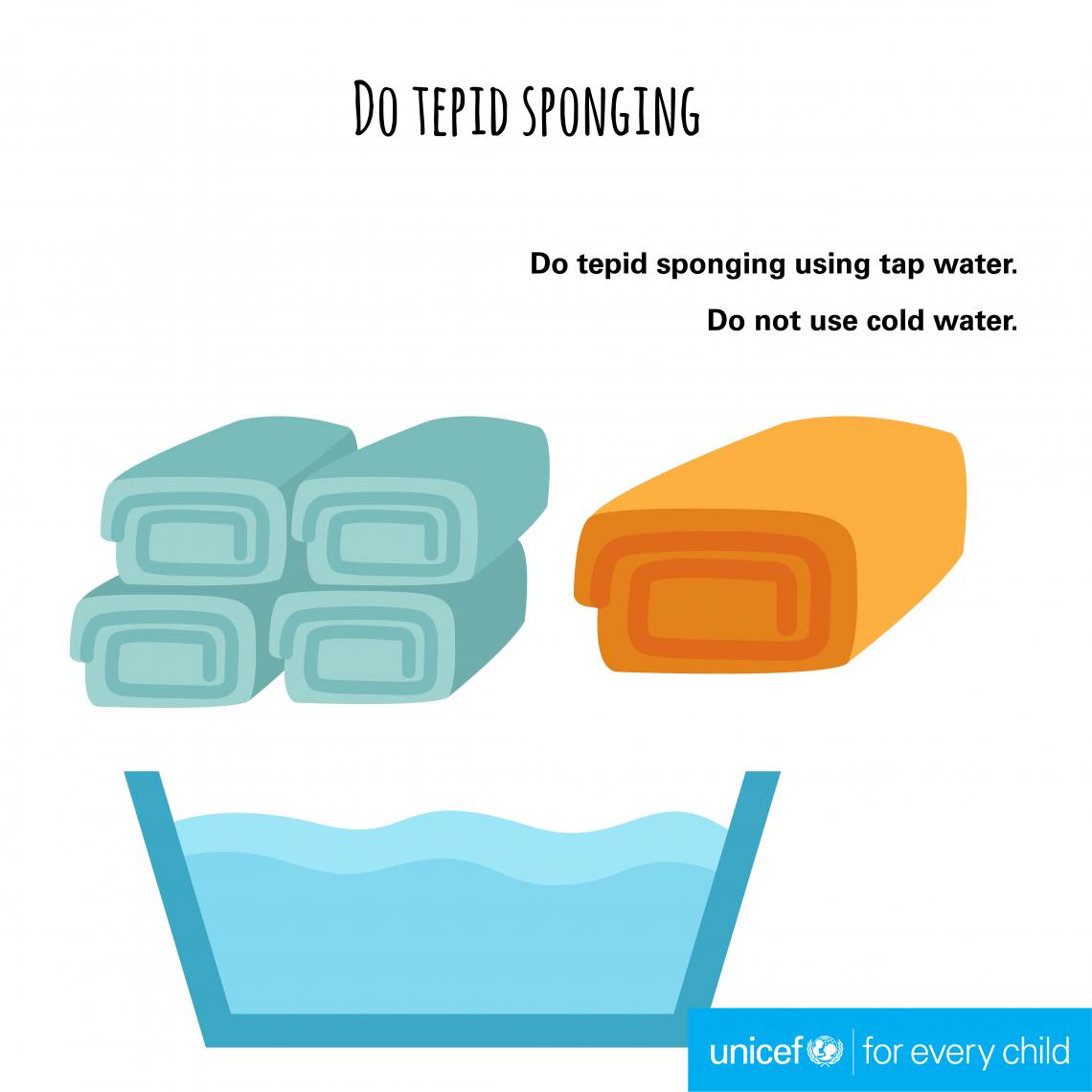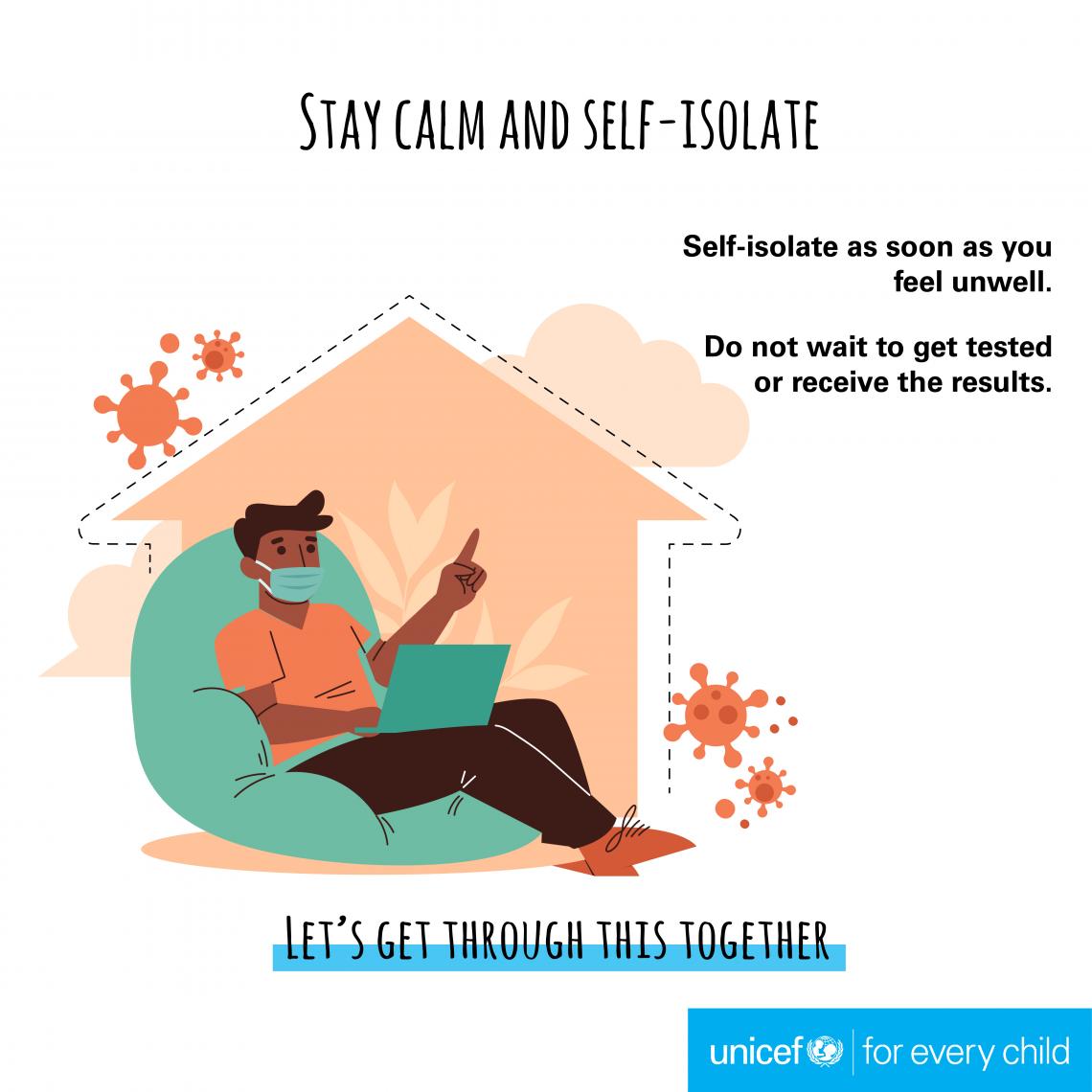Here are some useful tips that can help you and your loved ones manage and recover from #COVID19. Please share and don’t panic. Let’s also promise to mask up, stay safe and look out for each other during this difficult time.
NO. 1
Stay calm and self-isolate
As soon as you feel any symptoms including sore throat, a cough, loose motions or mild fever, isolate yourself immediately. This simple act of caution can save lives and help reduce the spread of COVID-19. Please don’t panic either. Remember that most people recover from COVID-19 and do not require hospitalization.

Self-isolate as soon as you feel unwell.
Do not wait to get tested or receive the results.
NO. 2
Consult a doctor
Reach out to a doctor by phone who can assess your condition and advise you on the best course of action. They might recommend that you stay at home and manage the symptoms, or that you need to go to hospital.

Seek medical advice on how to monitor and manage symptoms.
The doctor will tell you if you can stay home or need hospital treatment.
NO. 3
Stay apart
If you have been advised by a doctor to stay at home due to #COVID19, keep yourself away from the rest of the household and stay in a separate room (if possible) with all the essential items you will need for a 10-day stay. This will help protect those in your household from contracting the virus. If it’s an option, self-isolate in a room with an attached bathroom or toilet or washroom.

Isolate yourself in a separate, closed room.
Open the windows for ventilation if possible.
NO. 4
Wear a mask
Make sure that you and anyone else interacting with you in-person is wearing a triple-layered mask that covers the nose and mouth completely. Do not touch the outer surface of the mask or your face.

Wear a triple-layered mask whenever you open the door.
Those entering your room should also wear a mask.
Discard and use another mask after eight hours of continuous wearing.
NO. 5
Wash your hands
You have heard this often and it remains very important to help control the spread of diseases such as COVID-19. Wash your hands frequently with soap or a 70 per cent alcohol-based sanitizer. When you are self-isolating because of COVID-19 and want the room cleaned, please do it yourself with a disinfectant or soap. Utensils and dishes should be cleaned with soap/detergent and water while wearing gloves. The utensils and dishes may be re-used. Don’t share personal items like utensils and towels with others.

Wash your hands with soap frequently.
Clean your room yourself with disinfectant or soap.
Caregivers must wear gloves when washing dishes.
Don’t share personal items.
NO. 6
Check your oxygen levels
It’s important to keep an eye on your oxygen saturation levels regularly using a pulse oximeter. Put your finger in, press the button and wait to see your oxygen level and pulse rate appear on the screen. Check it every six hours or more frequently if your breaths are coming in too fast. The typical healthy range for oxygen saturation is between 95% and 99%. If it falls below 94% contact your doctor immediately and seek medical advice.

Monitor your oxygen levels every six hours or more.
Keep track of your levels in a diary.
NO. 7
Monitor your temperature
Every six hours, use a thermometer and see if you have developed a fever. If you have a fever, check your temperature more frequently to see if the fever is subsiding or increasing. It might be a useful practice to note down the oxygen level and temperatures so it’s easier to keep track.

Measure your temperature every six hours.
Do it more frequently if you have a fever.
NO. 8
Do tepid sponging
Give yourself a tepid sponge refresh using tap water. Do not use cold water. Ideally, if you are very unwell, have a caregiver or family member available to provide care. The caregiver should wear gloves and a triple layered mask while giving any support.

Do tepid sponging using tap water.
Do not use cold water.
NO. 9
Only have medicines which a doctor prescribes
If you are at home, a doctor may prescribe medicines to relieve symptoms. Do not self-medicate. Home concoctions like garlic, camphor and carom seed (ajwain) bundles cannot improve oxygen levels.

Take paracetamol (500 mg) every four to six hours if you have a high temperature, aches and pains.
Do not have more than four doses maximum within a 24-hour period.
NO. 10
Trust verified information only
Do not fall for false information from unverified sources. You should never self medicate, only take what the doctor prescribes you.
NO. 11
Stay hydrated and eat well
Drink enough water and eat nutritious meals even if you are unable to smell or taste them. There is no food known to treat or cure COVID-19 but eating healthy meals loaded with nutrients is useful to help your body recover.

Drink lots of water and eat nutritious meals.
It’s not a cure, but eating healthy will help your body recover.
NO. 12
Rest, relax, rest, relax
Your body and mind both need to rest and relax when you have COVID-19. Resist the temptation to doomscroll on social media and instead spend your time reading books, watching TV shows and films, listening to music, and having calls with your loved ones.

Distract yourself with books, TV shows and catch-up video calls.
Rest a lot.
If you feel up to it, do some light exercise.
NO. 13
Look out for danger signs
When you or a loved one are isolating at home due to a COVID-19 diagnosis and your doctor’s advice, look out for warning signs that indicate the need to immediately go to hospital and seek emergency medical intervention.

Seek emergency medical care in any of these cases:
Oxygen level on the oximeter drops below 94%
Shortness of breath worsens.
Lips or face turn blue-ish.
Feeling of disorientation increases.
Fever of more than 101F (38C) persists for three days.
Persistent pain or pressure in the chest.
Slurred speech / seizures.
Unable to wake up or stay awake.
NO. 14
Practise proning if oxygen level is low
If a person’s oxygen level drops below 94 per cent and medical attention is not imminently possible, proning at home is advised as an effective breathing aid.
Avoid proning for an hour after meals. Maintain proning for only as many times as it feels tolerable. One may be able to prone for up to 16 hours a day in multiple cycles as per the comfort level. Adjust the pillows slightly if you need to alter pressure areas. If someone is helping you they should be triple masked and wear gloves.
NO. 15
Continue COVID-appropriate behaviors
To prevent #COVID19, all of us have to continue wearing masks (the correct way), washing our hands frequently with soap, maintaining a distance of two meters, staying home and isolating if we have symptoms and getting vaccinated. Together all of these steps will be the weapon that helps us fight this pandemic.
NO. 16
Take care
It is a tough time and all emotions worrying about yourself or your loved ones are valid. What can help is making sure that we are there for each other and stepping up to protect those around us. ❤️
Buy Preventive Health Products











